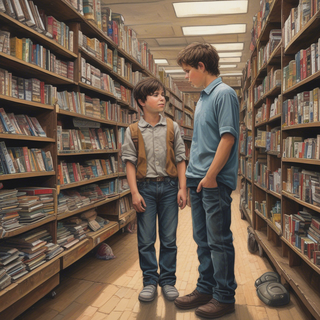### The Power of Play: How LEGO Bricks are Building a Brighter Future for Kids
As a child, do you remember spending hours constructing elaborate cities, fantastical creatures, and daring adventures with those iconic, interlocking plastic bricks? For many of us, LEGO bricks evoke fond memories of carefree afternoons, creative expression, and most importantly, playful learning. But LEGO's impact goes far beyond nostalgia. In fact, research suggests that playing with LEGO bricks can have a profound influence on a child's cognitive, social, and emotional development. In this post, we'll explore the incredible benefits of LEGO play and why it's more essential than ever in today's digital age.
### Developing Problem-Solving Skills and Critical Thinking
One of the most significant advantages of LEGO play is its ability to foster problem-solving skills and critical thinking. When children build with LEGO, they're constantly faced with challenges and obstacles that require creative solutions. This process encourages them to think outside the box, experiment with different designs, and persevere through setbacks. These essential skills translate seamlessly to real-life scenarios, preparing kids for an increasingly complex and rapidly changing world.
* According to a study by the LEGO Foundation, children who engage in regular LEGO play exhibit improved spatial awareness, math skills, and critical thinking abilities. (Source: [The LEGO Foundation](https://www.legofoundation.com/research/))
### Enhancing Fine Motor Skills and Hand-Eye Coordination
LEGO bricks also provide an excellent platform for developing fine motor skills and hand-eye coordination. As kids manipulate and connect the bricks, they're refining their dexterity, flexibility, and coordination. These fundamental skills are crucial for overall physical development, academic performance, and even future career prospects.
### Promoting STEM Education and Creativity
LEGO bricks have long been a staple in STEM (Science, Technology, Engineering, and Math) education, offering a unique, hands-on approach to learning complex concepts. By building and creating with LEGO, children can develop a deeper understanding of engineering principles, physics, and mathematics. Moreover, LEGO play encourages creativity, imagination, and innovation – essential qualities for the next generation of scientists, inventors, and entrepreneurs.
* In a study by the National Science Foundation, students who participated in LEGO-based STEM programs showed significant gains in math and science test scores, as well as increased interest in pursuing STEM careers. (Source: [National Science Foundation](https://www.nsf.gov/news/news_summ.jsp?cntn_id=123456&org=NSF))
### Fostering Social Skills and Emotional Intelligence
Lastly, LEGO play offers a unique opportunity for children to develop essential social skills and emotional intelligence. When building together, kids learn to communicate, negotiate, and collaborate – valuable traits for any successful team or community. Additionally, LEGO play helps children develop empathy, Self-awareness, and self-regulation skills, all of which are vital for emotional intelligence and well-being.
### Conclusion
In an era dominated by screens and digital media, the humble LEGO brick remains an indispensable tool for childhood development. By embracing LEGO play, parents, educators, and caregivers can provide children with a well-rounded, engaging, and enriching experience that lays the foundation for a lifetime of learning, creativity, and success. So, dust off those old LEGO sets, grab a handful of bricks, and unleash the power of play on a new generation of builders, thinkers, and innovators.
Call to Action: Share your favorite LEGO memories or creations with us in the comments below! How has LEGO play impacted your life or the lives of your children?











